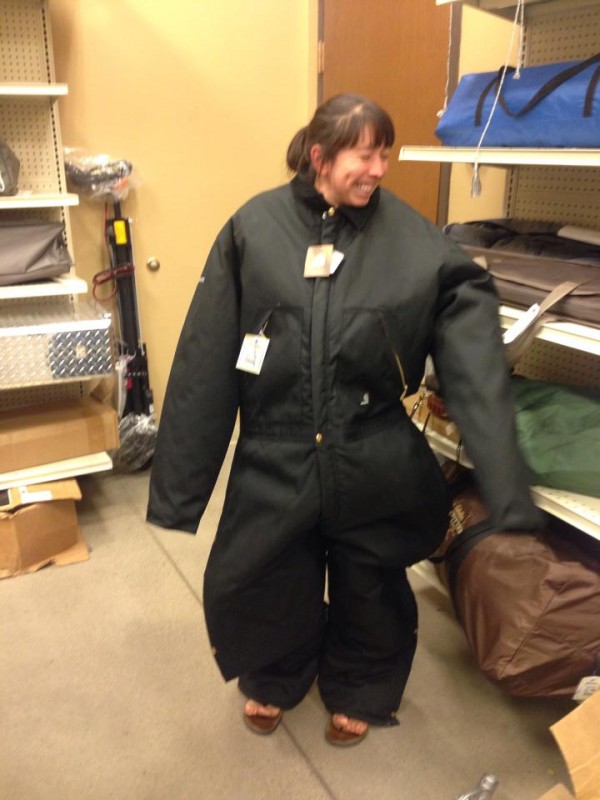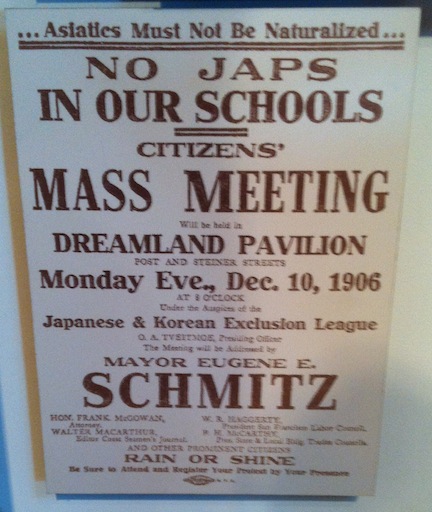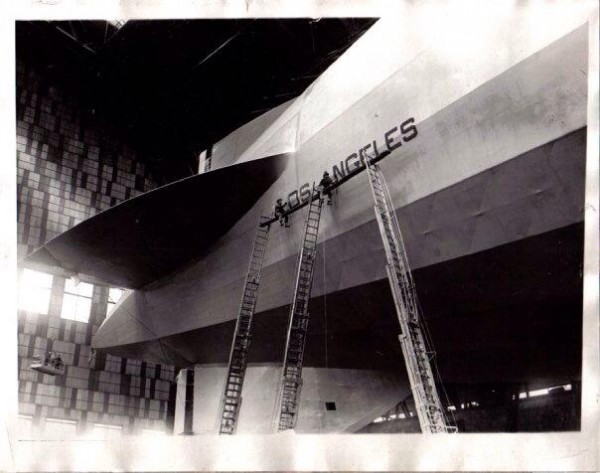 1. all you mfa candidates, all you college students, all you awp hangers-on, all you high school students wondering what to do (which is the same thing as how to live, how to make a life of your own, how to save your own life), all you secret poets looking for support, all you striving artists who need a job, what about you?
1. all you mfa candidates, all you college students, all you awp hangers-on, all you high school students wondering what to do (which is the same thing as how to live, how to make a life of your own, how to save your own life), all you secret poets looking for support, all you striving artists who need a job, what about you?
2. most will sooner or later find themselves outside institutionalization.
3. dreams tell us that the life of the mind goes on regardless. regardless of institutions or individuals, the life of the mind is a collective dreaming. the dream goes on whether anyone is making movies and documenting it, holding conferences and seminars about it or not. the mind goes on.
4. the institutional imagination, with its schedules and regulations, with its tests and prerequisites, will be insufficient on the outside, in a broader world of completely indifferent and more democratic sidewalks, offices, transactions, atmospheres. it’s true that sometimes high school or college provides the only encouragement working class students receive for creative thinking. and unlike academia which scaffolds individual efforts and conceives of art and writing as individualistic practices, the broader world is indifferent. institutions fetishize rational discourse, operating on the level of rationalization, as if sitting around a conference table in negotiation is going to be a major life skill for you. perhaps not! an institutionalized aesthetic production process you may have formulated in academia may not work for you outside.
5. you must get outside, and feel all right, producing some creativity that can stand the daylight (and the smog).
6. you may perhaps object that “the community” lacks community; in fact, there seem to be people there who are actively hostile, perhaps violent, toward ‘art,’ ‘dreams,’ ‘poetry,’ etc. you may object, that unlike in academia or other institutions, there were rules for discourse and behavior and you didn’t feel exposed to hostility. but make no mistake, millions of people that the media and Hollywood depict as nobodies and extras in the background (people of color) or zombies or killers (working class people) they are dreaming, too— some are having visions; all of us out here live inside civilization’s weird mythologies.
7. for all its talk (all of its attention to crossing T’s and dotting i’s), in academia and institutionalized civil forums, little dreaming occurs there. they emphasize rationalizations; their discussions take place inside bureaucratic mythologies. the creative thinking found there may be mostly recycled early 20th century concepts.
8. in the community (that lacks community), indeed they are dreaming. some feel hostile. there may be violence. many have been defeated; they feel they have been defeated. that doesn’t stop their dreaming, mythologizing, their visions. all of which helps you to figure out how to survive as an artist, writer, dreamer, mythologist, person of vision. stay alive. don’t get hurt. make a living. commitment to the community— that you make— while you are doing it, while you are producing.
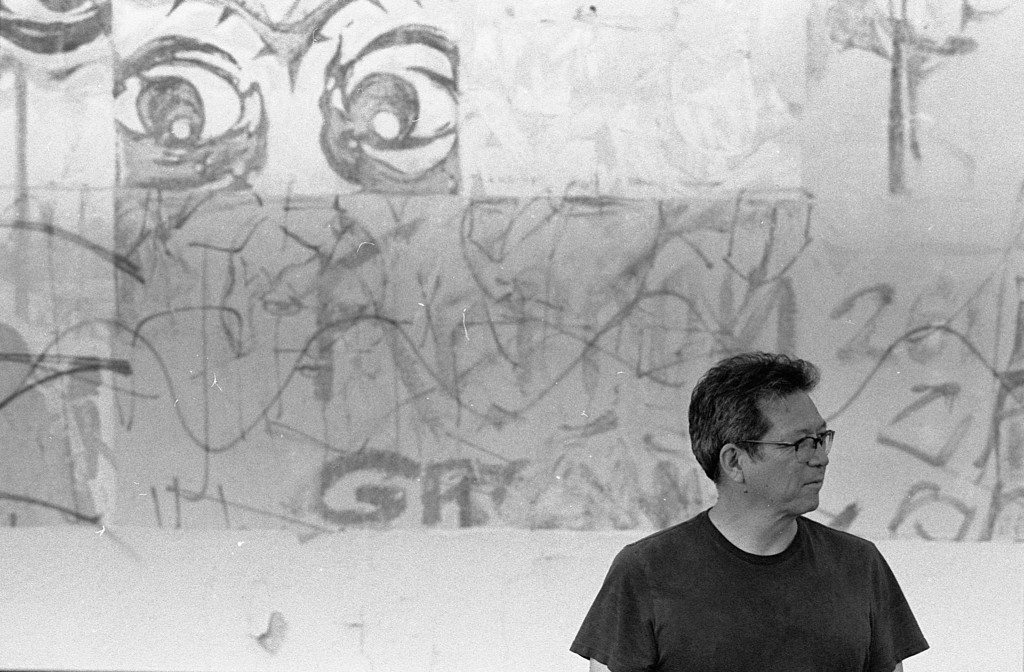
how to survive?
a. call me. call me at one AM, crying so i can hear mucous over the line, say UC irvine decided in the middle of your the first year of your MFA program to take back your financial award.
b. talk to me late into the night even if i have to get up for work.
c. meet me for noodles; i’ll take you to pho. i’ll listen to your whole deal, how you are a tenured professor but your books don’t sell. you edited a poetry series that was canceled by the university in a budget cut.
d. i’ll buy you pho.
e. ask me to lend you $40. i will.
f. text me. say you’re going to be at the airport on such and such a date, layover for the afternoon. i’ll take you to aliki’s tavern greek restaurant.
g. meet me at the little house in el sereno. your relatives standing silent behind us on the porch in the darkness before dawn, duffle bags in hand. we’ll embrace out front, breath coming out plumes in the chill. they slept on the floor and they’re ready to go, so there’s not much time to to chat. you don’t need more coffee, just a drink of water. you got thousands of miles to drive.
h. we’ll help you load. your people are waiting on you.
i. call me when you get to california. tell me you just arrived and don’t know anyone. you don’t have a place to stay. i’ll give you my cousin’s number (this was before he was married).
j. my cousin will let you stay at his place, mid-city for a month till you get a place. usually i’ve got a couch or an extra room.
k. meet me by accident at the front door. i’ll be living in a different house by then. one night when i am cleaning out the empty house, having moved out, trash bags in both hands, i can’t see you under the street lamp. people stand at the bottom of the stairs in the street lamp. you step into the light and tell me who you are, and we laugh because i haven’t seen you in years, the last time was a thousand miles away. you’re looking for an address up the street, a meeting at a house of an old revolutionary.
l. i’ll point up the dark street. i might know the person you are looking for.
m. change your name. get rid of your slave name, revert to the indigenous. run a pirate radio station out of a van around the hilltops of east l.a. broadcasting secret revolutionary communiques in the middle of the night.
n. ask me for a letter of recommendation for a job at the university. send me the CV, i’ll say anything. i’ll be glad to. that’s why they call it ‘creative writing.’ i’ve written hundreds of rec letters.
o. ask me to show up and talk to your students. i will.
p. i’ll drive to nimitz middle school and read poems to a library full of middle schoolers. i’ll read them poems and answer their questions about poems and about how to be a writer. i’ll find a ticket on my windshield afterwards. ask me to speak to a group of high school kids at the alternative high school. i’ll read them a couple poems at the picnic table under the tree. i’ll give each one at the table a free book of poems, and sign the ones who ask. (marisela norte will talk to students at another table.) ask me to talk to students at ucr (graduate seminars and undergrads on their cell phones), university of minnesota, harvard, hunter college, columbia, occidental, ucsd, ucsc, sf state, suny buffalo, eerie community college (where those kids paid real attention and asked great questions), pasadena city college, bisbee central school project, cal state l.a., cal state northridge, i’ll go. i’ll drive a rental car from boston south, from tucson through tombstone to bisbee, i’ll drive a rental from the airport at cedar rapids to a reading at lacrosse WI, up the cold winter mississippi river to minneapolis. i’ll drive four hours south through hellish stop and start traffic on the 5 to get to a benefit reading in someplace like laguna beach or san clemente.
q. ask me to meet you so we can talk about grad school.
r. ask me to meet you so we can talk about teaching writing to students.
s. ask me to meet you so we can talk about your manuscript, publishers, agents, your options.
t. don’t hesitate to appear in my dreams:
…california coast town, some novices—community college group— a handful of people amid desultory scattering of student desks, what’s going on? nothing? the instructor who is a pal, doesn’t have programming or agenda, turns to me, “you want to read something? you got something?” of course, i always have something. i can always do something. i’ll read, “the blue garage.” but what is “the blue garage”? it was supposed to be something i could run through without thinking. but now i can’t recall exactly what it was. i just need something, just a little clue, a word would suffice, just to get started. hold on, i’ll do this. i got this. but i can’t remember what it was. it’s like everything has gone dark, and indeed, i am standing in the middle of the blue garage. it’s an old abandoned garage, debris, blue paint blistered and peeling, and i’ve been standing there so long only one person’s left, my host leads me away. there’s a reception or gathering afterward in some little downtown storefront, but i’m in no mood, disgusted with myself, later i wake up in a furniture store in a pile of rugs—it’s morning in the town, time to go.
u. when you get old and sick, someone will put out the call. this person has been one of our best, one of our bravest, one of our toughest, they stood up for us, they spoke up and now they’re old and sick and need our help. because it’s true (you were brave and you never stopped), i’ll cut a check.
v. though i have debt without end, i’ll write a check.
w. ask me what i do for a living. when i answer, frown with your disgust and class bias. “really? that’s what you do?” you stare at me for a beat, eyes hooded. other people are friendly all around the table but after that exchange, you’re cold. what upsets you? (maybe you’re one of those professors who couldn’t publish a book to save your life.) are you one of those positivists, whose rationales mask horror at the seeming physical indifference of the world? if you cared to talk about it, i’d suggest that more than bureaucratic positivism, however, is required to write or make art. believe me, i worked two jobs for decades to enable my writing.
x. come over my house to tell me that you can’t stand it where you are staying, because the poet hosting you in l.a. fights all the time with her boyfriend— “it’s a house of pain.” talk to me about all the poetry festivals you attend around the world, where you can read your poems in los angeles and how can you get money for your poetry? i’ll tell you what i know about festivals, small presses, gigs, the poetry business. invite me to read poems in new zealand, as long as i pay my way.
y. call me and leave a message saying you want me to look at your manuscript.
z. i’ll be happy to look at your manuscript. don’t commit suicide in that motel in san clemente. don’t treat other people like they are disposable, least of all yourself! don’t throw yourself away! treat people well, be good to yourself, be at your best in your work, and you will receive coffee, grants, awards, blurbs, introductions, couches to sleep on, beer, wine, meals, job offers, referrals, advice, sexual favors, puppies, flowers, photographs, poems, rides, money, fellowships, lessons, trips, tips, applause, passes, residencies, walks, recipes, bicycles, admiration and respect, hugs, stories, glimpses, visions and gifts of lives that otherwise would never come your way. if you commit suicide in that motel room you get nothing.
one of the beautiful things about art or writing can be that it comes from you, represents you in the crowd, bears your handprint, it tells your story, it’s personal in the indifferent universe, it’s fun in such grim times, the hopeful thing that is your own gift to give. when you survive as an artist or writer, you will produce art and writing that will help you to survive.
so:
1. meet the artists and writers of your community. talk to your elders. tell them why their work has been important to you. to do that, you must find out why their work is important to you. who are your predecessors? find out how they did it. ask them how it went for them.
2. meet the people in your community. talk to the elders. find out how they have used intelligence and creativity to survive as human beings, which is to say, how did they survive creatively, intellectually? you want to survive as a human being, with creativity and intelligence.
3. which is also to say, how do artists and writers relate to and depend on people in the community? how do artists and writers relate to the tamale lady, community activists, labor organizers, busybodies, gossipers, to the Executive Secretary-Treasurer of the Los Angeles County Federation of Labor, AFL-CIO, to homeless people, to the store clerk (to the video store clerk who wants to be a poet, and his co-worker, the video store clerk who wants to be a sculptor), to ghosts, to secret and forgotten individuals of the past, to kids (who in a few years will be completely different people)? how do artists and writers relate to members of informal underground organizations, gangs, to businesses, to soccer coaches in the city parks and teachers at the nearby school, to the retiree who grew up around here before there were houses, who used to teach judo in Boyle Heights and whose sister is a well-known artist, now he has Alzheimer’s? many of these people know the secrets of survival and how to create community. their survival and their triumphs show that. the life of the community shows that, vibrating on those frequencies.
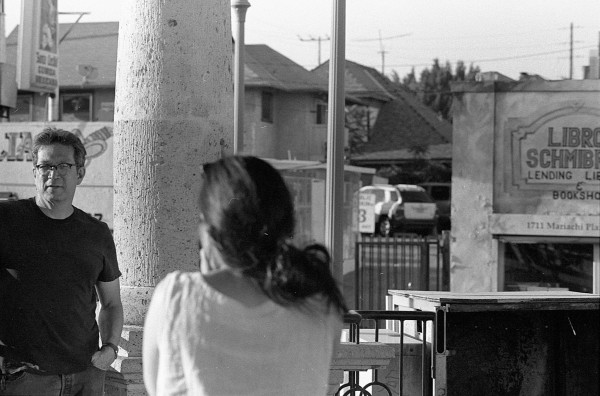
In short, I suggest that you must develop community, you must create for yourself community, beyond just a “support network.” Recently, in the typical superficial style of L.A. Magazine, like all such booster magazines devoted to only the glossiest, most superficial view of the city, a former L.A. Times writer, Scott Timberg, wrote an essay called “Leaving Los Angeles,” in which he mourns the cumulative effects of Reagonomics and the destruction of the “middle class” in L.A., and particularly, his own deteriorated status. “As much as I like Los Angeles,” Timberg writes, “which has been ‘home’ longer than my Maryland hometown was—I’m no longer willing to be a third-class citizen here.”
(I say that America has always treated its artists and writers as third-class citizens.)
Perhaps you, like Timberg, grew up believing that you could move to any community anywhere and due to your education, your whiteness, your privilege, you could engage in a “middle class” life (where every activity is a business transaction allowed by your money and monetized skills, neatly performed within the snappy ideologies of capitalism) and generally not have to consider the struggles of people in your community—and specifically, the struggles of people who made the community more liveable for everyone, labor organizers, unions, community activists, peace activists, public service workers, intellectuals, artists and writers who came before you (from Maryland or wherever). But those things that were good, those people who were good, who greeted you when you showed up, they worked for all that.
Timberg writes (in the July 2015 L.A. Magazine), “In older, more settled places, you’ve missed your chance to belong if you weren’t born there, but L.A. is different. You typically become a local a year or two after landing.” But Timberg demonstrates nothing beyond a superficial idea of community, nothing more “local” than a list of tourist activities that he enjoyed about the city (“Rhino Records… Canter’s… Largo… We hiked in Joshua Tree, drove to remote, tree-shaded wineries…”). After “landing,” these “middle class” writers or artists live the detached life of tourists, who want a life served to them by the community. They want no part of the struggle to make that community.
It may be that you as writer or artist of the post-Reagan era, do not have that privilege.
After the Reagonomic destruction of the “middle class,” reducing many citizens to the “third-class” status where the rest of always us already always were, fighting for our lives, I suggest that disregard of the issues, struggles and history of the community is NOT in your interests as an human being (“the impossibility of being human” as Charles Bukowski put it), as a writer or artist, or as a citizen of any community.
Listen to the snide, complacent class disdain latent in the praise for Los Angeles in a source quoted in Timberg’s article: “Siobhan Spain, who resettled in the Midwest when the Chinatown gallery she directed shut down, remembers L.A. as a magical place: ‘Where else, on any certain day, could you witness Esa-Pekka Salonen conducting at Walt Disney Concert Hall, walk by a homeless person defecating on the sidewalk, swim near dolphins at Point Dume State Beach, help install artwork by Stanford Biggers, sit in traffic for over an hour, watch your friend act in an episode of Nip/Tuck, and go to sleep with ghetto birds circling your neighborhood?” It’s the magical white L.A., where you have friends working “the industry” and Disney Concert Hall [magically built on top of the destroyed neighborhood of former Bunker Hill] and Point Dume State Beach are there for you; and it’s not your friends “defecating on the sidewalk,” not your people targeted by “ghetto birds.” It’s magical white L.A. until your gallery is shuttered, and you are proletarianized. Ah, then it’s not so “magical”. Time to flee.
You, young artist, young writer. Go anywhere you like. But know that a community was there before you—this land was not a magically unpeopled wilderness to be colonized but a place of history, secrets, struggles, heroes and issues. What made it a community was not magic, but labor. Maybe if your labor and your work relates to them, if your aesthetic process is open to that community, your work will not be superfluous. Your work might be useful. You may not have to suddenly flee, like a tourist from the off-season. As an artist or writer anywhere, you’ll need community to survive. Your community-building not only helps you survive, it helps you produce.
4. This argues against the artist or writer as tourist, as parachute journalist. You can develop more organic sources.
5. Your own aesthetic process is a transformative activity; it’s not an economic transaction that you purchase with a university degree.
6. See also, “Letter to a Young Nonprivileged Poet” by Sandra Simonds
7. See also, “Writing the Truth: the Five Difficulties” by Bertolt Brecht. In fact, there’s probably too long a list of interesting, useful ideas for you, too long to list here. Part of the fun is getting together with others to find it and discuss it.
8. You gotta have fun doing it. Too much fun.
9. Otherwise this is too much work.
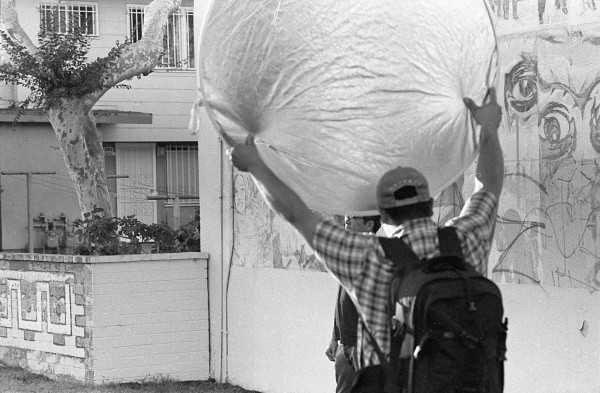
(Reposted with permission from the author’s personal blog.)

